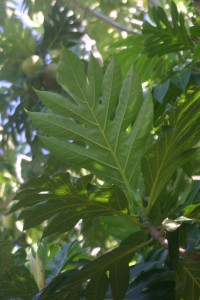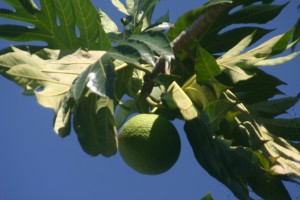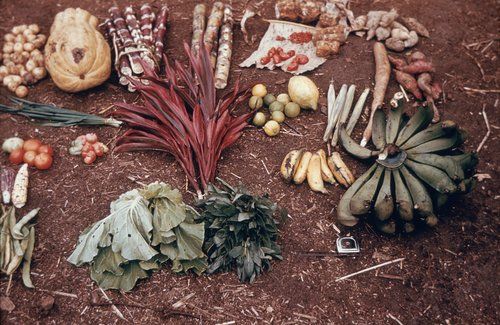Frank Lohmann asked an intriguing question in a comment on a recent post about breadfruit:
I have several breadfruit trees, which most likely go back to the trees captain Bligh brought to Jamaica, does anyone know which variety that is?
 The reason Frank gave for believing his plants to date back to Capt. Bligh is “because he brought them to Bluefields were I live and planted them here.”
The reason Frank gave for believing his plants to date back to Capt. Bligh is “because he brought them to Bluefields were I live and planted them here.”
I asked for some photos and showed them to Diane Ragone of the Breadfruit Institute in Hawaii. She said that it is certainly plausible that the tree is from Tahiti.
Pressed for a variety name, this is what she said:

It’s so hard to tell with the Tahitian varieties. There are so many of these Polynesian triploid types with round fruit and deeply lobed leaves. Perhaps Rare, which was one of the varieties that Bligh noted in the Bounty log, but no mention in the Providence log as to what he actually brought to the Caribbean. A paper on that is on my too-long and neglected list of papers on breadfruit!
So we’ll just have to wait for a positive ID. But Frank could well be right that his breadfruits go back to the famed captain. I for one will choose to believe they do.
